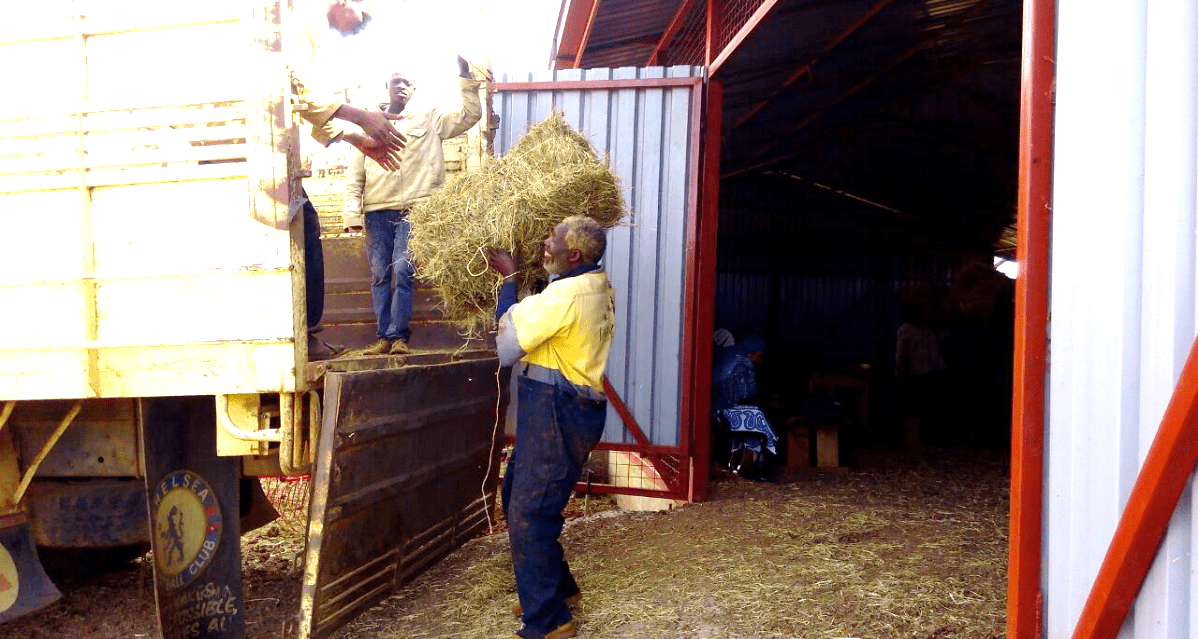
Drought degrades grasslands and prompts their disappearance, leading to a loss of livestock. This can be detrimental for pastoralists, who depend on livestock for their livelihood. In late October 2016, Kenya’s Marsabit county, where ACDI/VOCA implements the USAID-funded Resilience and Economic Growth in the Arid Lands – Accelerated Growth (REGAL-AG) project, purchased 600 hay bales from Emmaus Sixty-two Enterprises under its drought emergency response initiative. Emmaus Sixty-two is the recipient of one of REGAL-AG’s business development grants.
“The current drought in Marsabit County has intensified over the last couple of weeks, especially in Kampi Nyoka near Turbi, where the 600 hay bales will be distributed,” says Paul Pasalaach, REGAL-AG fodder specialist.
The hay bale purchase was prompted by a recent drought assessment conducted in Marsabit County by the National Environment Management Authority (NEMA). According to the report, Kampi Nyoka is one of the severely drought-affected areas, where close to 24,000 sheep and goats face starvation.
“The county government requires a minimum of 2,000 hay bales to address the needs of Kampi Nyoka, and has so far obtained 600 hay bales from Emmaus Sixty-two Enterprises,” comments Paul. “It will procure an additional 580 hay bales from Gulaid Farm Investments, as well as from other sources, to top up the difference.” A pasture commercialization entrepreneur who is also a REGAL-AG grant recipient runs Gulaid Farm Investments. Marsabit county’s procurement of 1,180 hay bales from two REGAL-AG entrepreneurs demonstrates the county’s willingness to foster a partnership with pasture producers to mitigate the effects of drought on livestock.
REGAL-AG promotes behavior change among pastoral communities and encourages them to manage their pasture resources. It scales up pasture production to increase access to animal feed in all seasons. So far, the response has been positive, with the number of individuals and groups taking up pasture commercialization steadily increasing over time. “Pastoralists have now realized that pasture production is a profitable business venture,” explains Paul.
Additionally, the project awards business development grants to promote pasture commercialization, aimed at improving the health of livestock, and to create a source of income for pasture producers. It also partners with the county government, development organizations, and pastoral communities, to scale up pasture rehabilitation and land reclamation practices.








